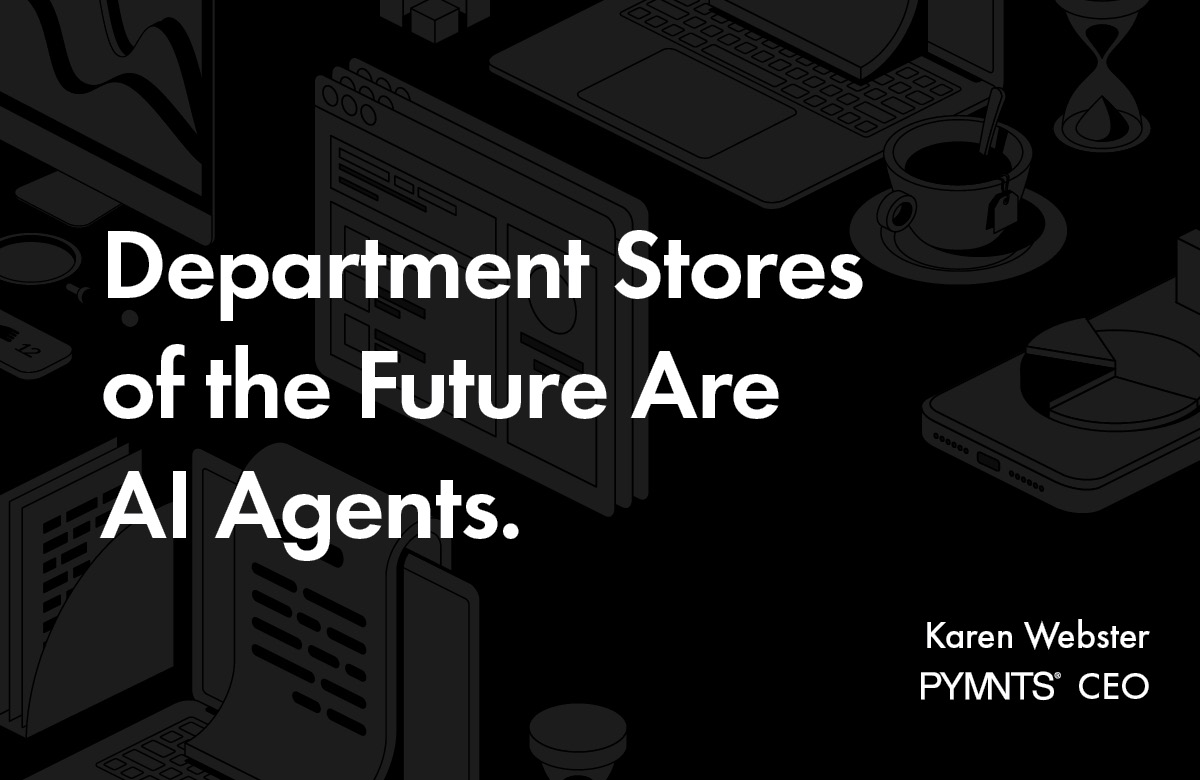Summary
In this NEXT Newsletter, Karen Webster says that AI agents with curation will be the department stores of the future.
Source: pymnts.com

AI News Q&A (Free Content)
Q1: What are AI agents, and how are they transforming the retail industry?
A1: AI agents, powered by artificial intelligence, are computational systems designed to perform tasks typically associated with human intelligence. In the retail industry, AI agents are increasingly being used to enhance customer experiences by providing personalized product recommendations, streamlining inventory management, and improving customer service through interactive chatbots. These agents leverage machine learning algorithms to analyze consumer data, predict shopping behaviors, and offer curated shopping experiences, essentially transforming traditional retail into a more dynamic and customer-centric space.
Q2: How do large language model (LLM)-based AI agents differ from traditional AI agents in retail applications?
A2: Large language model-based AI agents differ from traditional AI agents primarily in their ability to handle complex natural language, store vast amounts of knowledge, and reason effectively. These capabilities enable LLM-based AI agents to provide more nuanced and sophisticated customer interactions in retail settings. For instance, they can understand and respond to detailed customer queries, enhance the personalization of product recommendations, and support more interactive and engaging virtual shopping experiences.
Q3: What are the latest advancements in AI agents that cater to department store environments?
A3: Recent advancements in AI agents for department stores include the integration of AI-driven chatbots and virtual assistants that assist customers in finding products, answering queries, and providing recommendations based on personal preferences. Additionally, AI agents are being used to optimize supply chain processes, manage inventory levels, and predict consumer trends, ensuring that department stores can efficiently meet demand and enhance the overall shopping experience.
Q4: How is the concept of AI agents as the 'new department store' impacting online grocery shopping?
A4: The concept of AI agents as the 'new department store' is significantly impacting online grocery shopping by offering personalized and convenient shopping experiences. AI agents can analyze purchasing patterns and dietary preferences to suggest suitable products, create automated shopping lists, and even schedule deliveries. This level of customization and convenience is reshaping how consumers approach online grocery shopping, making it more efficient and tailored to individual needs.
Q5: What are the economic implications of integrating AI agents into department stores?
A5: Integrating AI agents into department stores has several economic implications. It can lead to cost savings through automated inventory management and reduced labor costs by minimizing the need for human staff in customer service roles. Additionally, by enhancing customer experiences and increasing sales through personalized recommendations, AI agents can contribute to higher customer retention rates and increased revenue for department stores. However, initial investments in AI technology and potential job displacement are challenges that need to be addressed.
Q6: What ethical considerations are associated with the use of AI agents in retail environments?
A6: The use of AI agents in retail environments raises several ethical considerations, including data privacy concerns, as AI systems often require access to extensive consumer data to function effectively. There is also the risk of biased decision-making if the AI algorithms are not adequately trained on diverse data sets. Furthermore, the displacement of human jobs by AI agents poses ethical questions about the future of work and the need for workforce reskilling and adaptation.
Q7: What future advancements can we anticipate in AI agents for department stores?
A7: Future advancements in AI agents for department stores may include more sophisticated predictive analytics to anticipate consumer needs and preferences more accurately. We can also expect enhanced integration with augmented reality (AR) and virtual reality (VR) technologies, providing immersive shopping experiences. Additionally, AI agents could become more autonomous, capable of managing entire store operations, from supply chain logistics to customer engagement, with minimal human intervention.
References:
- SoundHound AI, Inc.
- Artificial intelligence
- An In-depth Survey of Large Language Model-based Artificial Intelligence Agents





